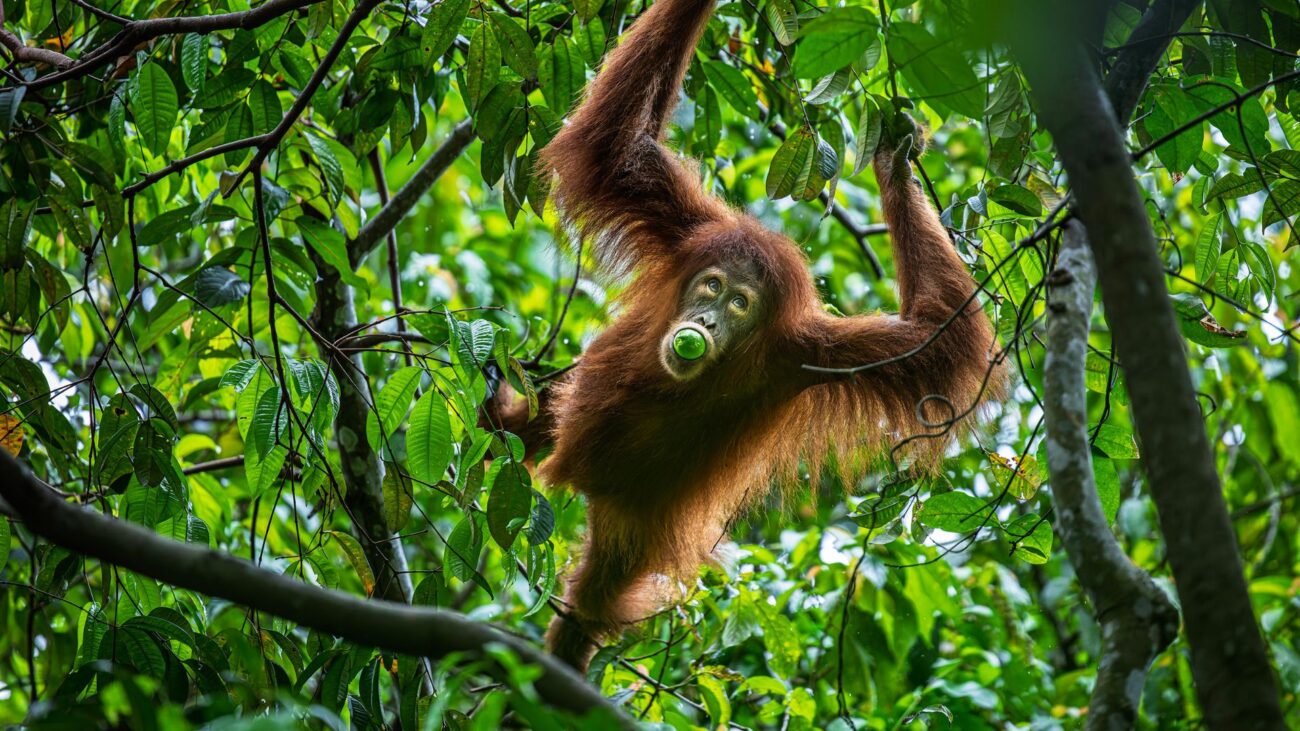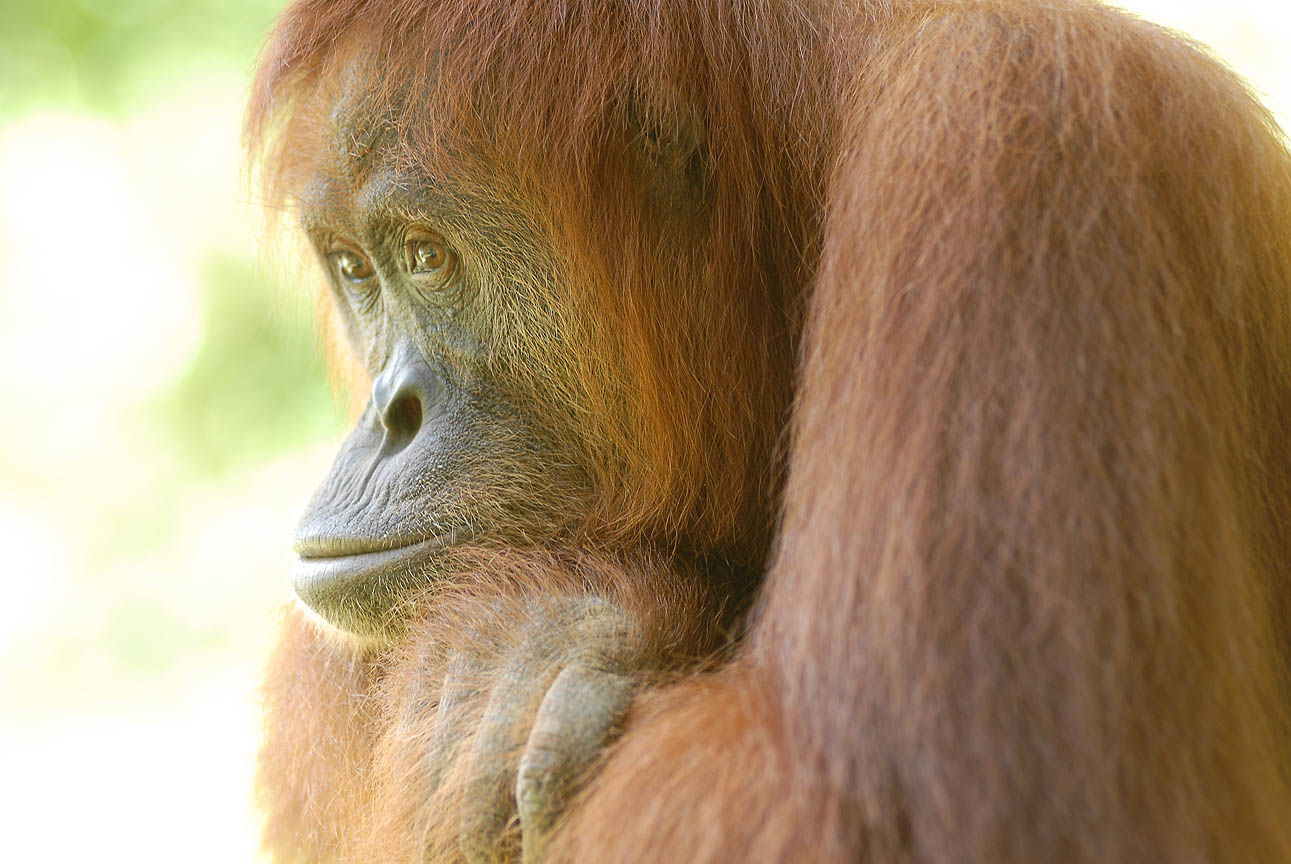
Photo credit: Zac Mills, the Wildlife Collective
The availability and accessibility of fruit are integral to almost every aspect of ape biology and behaviour. But there is no word to describe the act of foraging for overripe, fallen fruit. As a result, this behaviour and its important role in our evolutionary history have been overlooked. That was, until now.
Researchers have coined the word “scrumping” to describe apes eating overripe or fermented fruit from the floor. This comes from an old German word meaning “shriveled” and may sound familiar due to its connection with “scrumpy” – the strong cider originating in the West of England. But why is scrumping such a crucial behaviour?
Around 10 million years ago, in our last common ancestor with chimpanzees and gorillas, an enzyme (ADH4) that breaks down ethanol mutated. This mutation boosted the ability to metabolise alcohol by 40 times. This coincided with when early apes began spending more time on the ground, exposing them to overripe and fermented fruit.
Researchers anaylsed thousands of feeding records from wild orangutans, chimpanzees and gorillas. African apes frequently ate fermented fruits from the forest floor. Orangutans didn’t show this behaviour, aligning with the ADH4 genetic evidence. This might seem small, but it represents a huge evolutionary step.
Eating fermented fruit has clear benefits for African apes. They can avoid dangerous climbs and don’t have to compete with monkeys for fresh fruit in trees. The ability to metabolise ethanol enables them to safely consume nearly 10 pounds of fruit each day. What’s more, they scrump socially – just as humans do.
Why is this important? The researchers argue that this mutation changed the course of human history. The ability to metabolise ethanol could have been a major driver turning humans from hunter-gatherers into farmers. If this sparks your curiosity, follow our page for more. We share groundbreaking research every week!
Reference: Nathaniel J Dominy, Luke D Fannin, Erin R Vogel, Martha M Robbins, Catherine Hobaiter, Fermented fruits: scrumping, sharing, and the origin of feasting, BioScience, Volume 75, Issue 9, September 2025, Pages 774–778, https://doi.org/10.1093/biosci/biaf102
You can help protect Sumatra's Orangutans. Click to get updates
